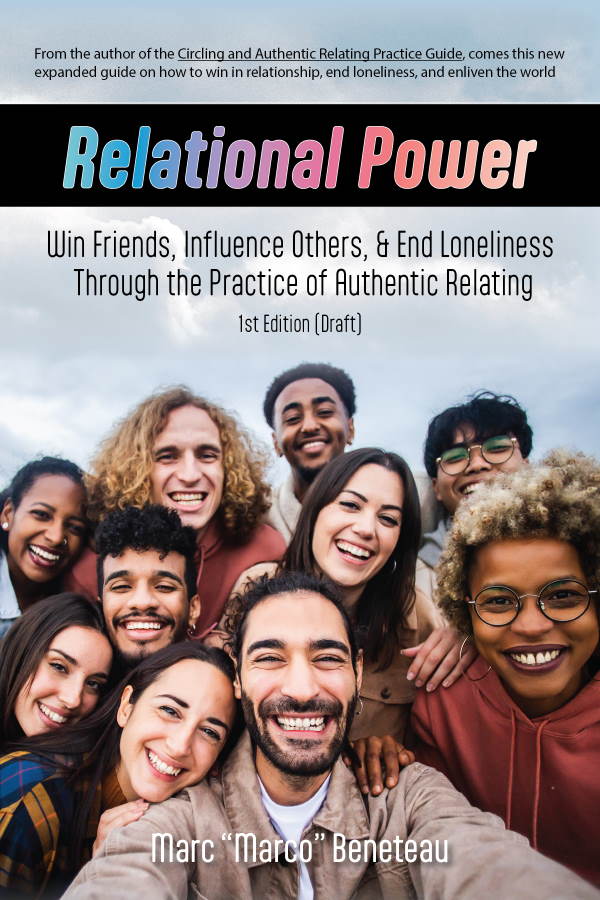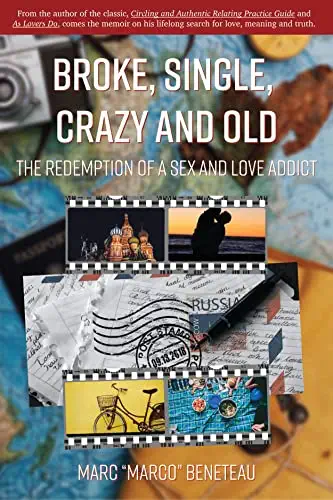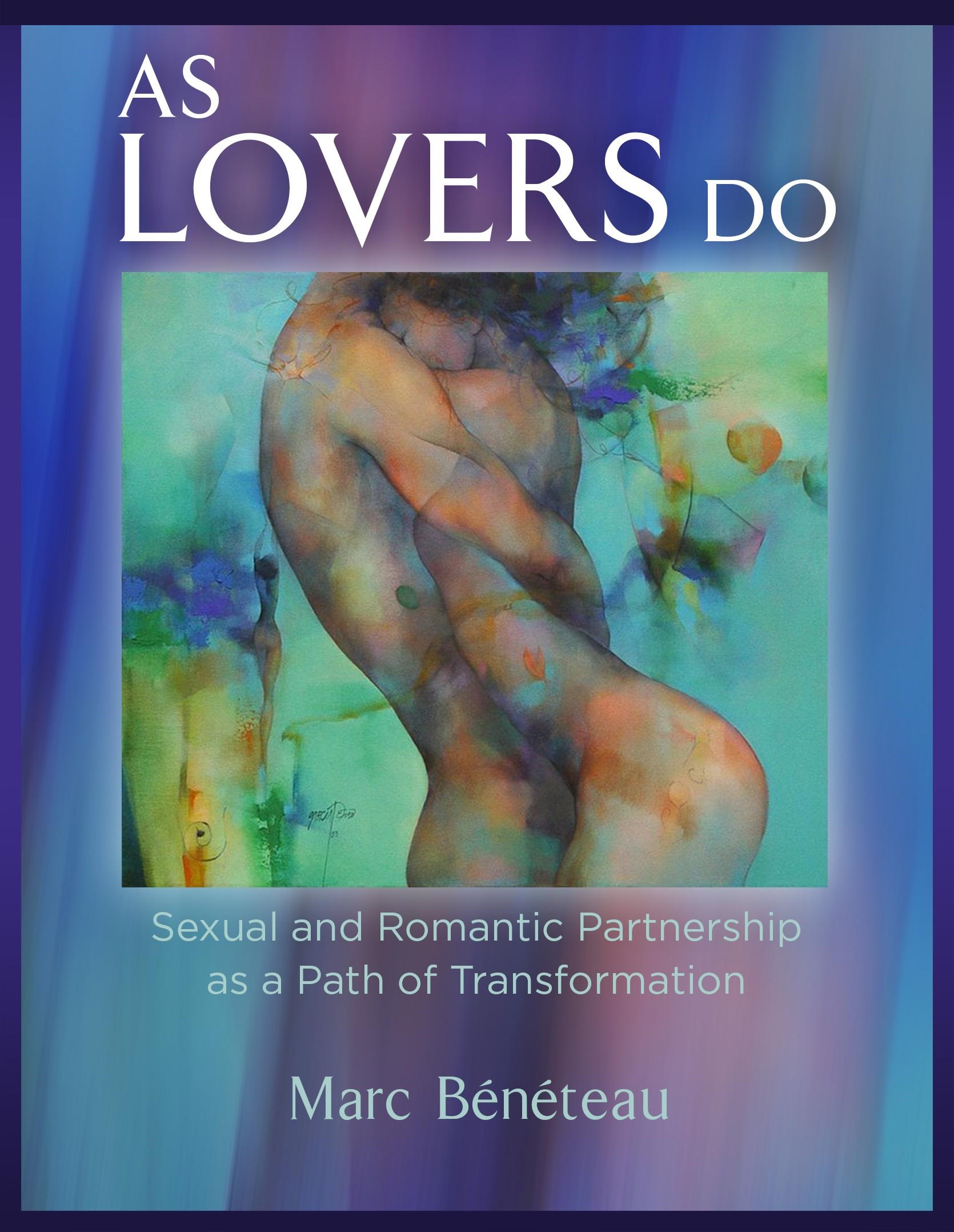Self-Circling, Circling Europe style
While this is not part of any official circling curriculum, Circling can be done with yourself, as an internal conversation. Daniel Tenner explains this modality:
“The way I do it, self-circling involves simply reflecting on what’s happening as if there was someone in connection with me helping me explore it and probe it. Like, I might notice I feel angry. “Where is this anger? How does it feel? Is it moving?” someone might ask… so I can ask myself that too.
As I stay with the anger and observe it, I might start to discern, as I would if I was being circled, “oh, there’s some pain or some fear underneath there…”
To which someone circling me would naturally respond by enquiring into that pain or that fear… so as I self-circle I will do just that… stay with the fear, discomfort, or whatever it is, hold space for it, and let it be seen for what it is, by me at least. This is less powerful than doing this with someone else – there’s something about the Other that naturally makes this process better – but it can still lead to interesting place.
So then as I stay with that, say, fear, I might notice that a certain image is coming up in connection to that fear. I can then explore that image. What feelings are connected to it? What else is arising with it?
I keep digging until I decide to stop. At that point, I’ve usually already unpacked a whole lot of stuff and moved from reactive anger to much more self-understanding and, often, other-understanding (since often that anger might be in reaction to something outside of me, initially – or at least it feels that way).
Mostly self-circling relies on the commitment to connection with myself: being willing to stay with feelings that I’d normally want to push away or distract myself from or project onto others, to accept them, to listen to them, let them be seen and experienced fully. I think one of the most miraculous aspects of Circling is what happens when you start to do that, instead of reflexively moving away from unpleasant stuff and trying to pretend it doesn’t exist. Initially, you definitely need others to help hold space for this stuff. And, surely, I still need others to hold space for the stuff which is still too big for me to accept (and that stuff always exists somewhere I guess). But there’s a lot of situations in life where I can circle myself in this way and achieve a lot of the benefits of being circled by someone else, but do it inside my head, so that by the time I communicate with the other person, what might come out is: “Wow, when you said that I got really angry. I stayed with that a bit and realized that it’s because I’m afraid that you might <xyz>. Then I thought about what you said and I realize that you’ve already said that you wouldn’t <xyz>. I guess I’ve not gotten over that fear of <xyz> yet. What do you think about this?” Which opens the space for a much better conversation than “wtf! Why are you doing this?”
In a sense we all do this while circling anyway – it’s the bit that goes on in our self while we’re silent, the reflection on “what is it that I’m actually feeling right now, authentically? What do I actually want to say?” – except that in this approach, you can just keep doing that by yourself without interacting with anyone until you feel satisfied with where you’re at”.
Self-Circling, IFS / IRF style
Update Nov/2019: I don’t actually use this style of self-circling any more, what I do now (which I have found extremely effective, especially in the night when I can’t sleep) is more Daniel Tenner’s style above (thanks Daniel!). My current approach is more of a mindfulness practice. Starting with the breath I just name what is arising out-loud, and respond with a kind of self-soothing dialogue (“circling leader” or maybe “re-fathering”) in which I try to enlarge perspective on the depressive or fear-based thoughts that are causing me to be awake. It generally works very well although it can sometimes take an hour or more to get back to sleep.
________________
Self-circling is very complementary and a powerful addition to a popular therapy modality called Internal Family Systems (IFS). The approach I am about to describe is partly derived from a similar (and very powerful) modality called Inner Relationship Focusing (IRF), created by Ann Weiser Cornell; and is also related to a practice called Voice Dialogue (Hal and Sidra Stone), and to Big Mind (Genpo Roshi)
IFS posits that our psyches are composed of multiple “sub-personalities” who are often at war with each other, engaging in continuous conflict (and sometimes abuse) which lessens our effectiveness by filling our heads with arguments that never get resolved, and taking attention away from creative and constructive solutions and actions.
The solution to this problem is to “circle” your sub-personalities. The “leader” of this circle is, ideally, the “Self”, or higher personality (integrating force) within the IFS model. There are various ways of doing this. You can journal in each of the sub-personalities voices. You can also do a “family meeting”. I like to record my family meetings into a Digital Voice Recorder which is set on voice-activation, so I can just lie in bed relaxing and dream-up internal conversations that get recorded, and which I can listen to afterwards for relaxation or inspiration. This practice is also inspired by Shakti Gawain’s book Creative Visualization, with the difference that in self-circling we are not exactly giving affirmations (although that too), we are trying to surface and lovingly resolve tensions in the inner family dynamic.
If you are doing voice dialogue and you have direct access to the sub-personality’s voice, you should name that voice on the recording (i.e. “Teenager says: fuck you, Marco“), and then get impact statements from Self or other sub-personalities. If you don’t have direct access to sub-personality voices (i.e. they communicate with you through feelings or images), then let “Self” speak for them and provide empathy, as best you can discern.
It might go something like this (I like to interject a little humor into the proceedings): “Hello dear ones, this is your captain speaking on March 30. So, I hear some of you are pretty stressed out, and Pauline in particular is quite upset right now. I have this uncomfortable feeling in the pit of my stomach about this, and I am not sure why...”. And so forth. Try not to make anybody wrong, and when speaking as Self, position yourself as the moderator / facilitator of a circle, not the dictator of you J. In other words try to speak for all voices, especially the silent voices (known in IFS as “exiles”) and the reactive voices (known in IFS as “protectors”).
It can be quite helpful to give sub-personalities names. The first week I did this was quite exhilarating because every day a new sub-personality would emerge and get named. Naming sub-personalities is very fun, it’s like a party in which every day a new arrival.
A good book to read on IFS is Jay Early’s Self-Therapy: A Step-By-Step Guide to Creating Wholeness and Healing Your Inner Child Using IFS, A New, Cutting-Edge Psychotherapy.


